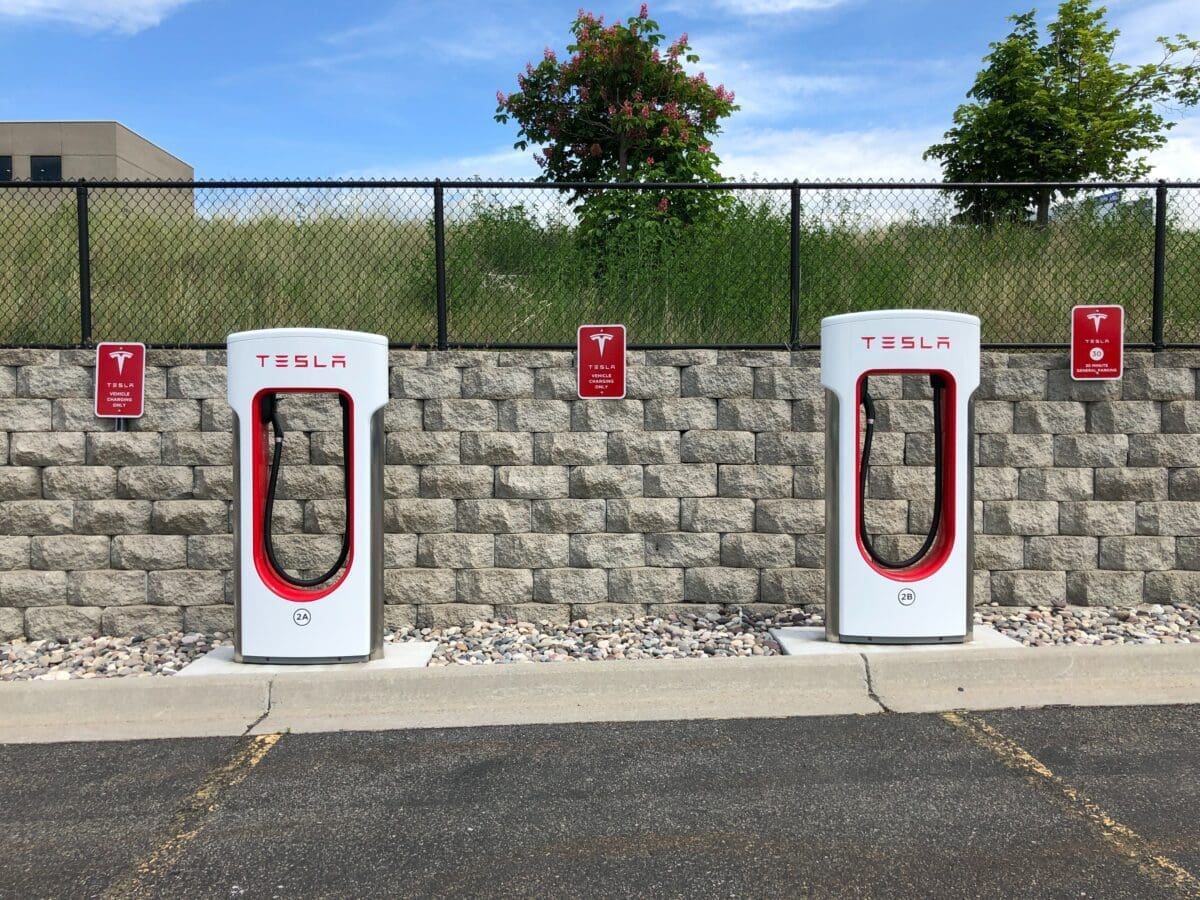

Electric vehicle charging station costs came up during a budget meeting on Wednesday.
Photo by Chad Russell, Pexels
The cost of providing electric vehicle charging stations up and down Delaware popped up in a Joint Capital Improvement Committee meeting this week.
Sen. Nicole Poore, D-Delaware City, asked if the Department of Transportation is considering the cost of adding more electric vehicle charging stations across the state and transitioning school districts to more electric vehicles.
“Everybody wants to move to electric cars, but you don’t realize the back end and what the cost is,” Poore said. “And so either that’s going to be pushed off into local funds or someone’s got to pay at the end of the day. Are we doing anything to help support our school districts that will be going to the electrical cars?”
The questions come as the Delaware Department of Natural Resources and Environmental Control is finishing regulations that will require dealers to provide increasing numbers of electric vehicles for sale in Delaware until 2035 when no gas-powered vehicles are allowed to be sold in the First State.
The move, based on an executive order from Gov. John Carney, has been met with a lot of opposition and questions about how that will affect lower-wage earners, because the cars are expensive, Delaware’s power grid and the ability to charge a car.
Nicole Majeski, the secretary of the Delaware Department of Transportation told Poore that the state hasn’t yet put out proposals to build more charging stations.
The state’s next move would be to request proposals “to see what kind of costs we are going to get,” Majeski said.
“Because to your point, there is a huge demand right now,” she said. “And so we’re gonna see what response that we get and how much that would actually cost to be able to install these chargers and then be able to operate them and maintain them going forward.”
Majeski said districts have been looking to transition to electric buses and the Department of Transportation has been working with the districts to better transition.
Bus purchases in general are controlled by the Department of Education. Districts request buses and if the state agrees the district needs them, the state will buy them.
“We have been working with DOE and the school districts that are interested in that to make sure that they are prepared for the kind of lessons learned of what we’ve seen with electric buses that we have,” Majeski said. “Making sure that once they receive them, the type of charging units that they’re going to need to have and then the maintenance associated with them. So we’ve been providing that support to the school districts that are looking to expand to the electric buses.”
Related Story: EV bills inch closer to law as GOP continues opposition
The committee on Wednesday unanimously approved $763,128,080 for the Delaware Department of Transportation.
That money provides $100 million for paving, $81 million for bridges, $47 million for a bypass in North Millsboro, $12 million for resiliency, $6 million for the municipal street fund, $5 million for the transportation infrastructure investment fund, $30 million for the subdivision street payment management fund, $21.15 million for the community transportation fund, and $72 million for safety.
Safety projects include improvements to intersections, rail crossing safety, and keeping sidewalks updated to the Americans with Disabilities Act.
Sen. Marie Pinkney, D-New Castle, asked Majeski about pedestrian safety and preventing flooding.
Majeski said about 250 miles of state roads are frequently flooded, and they hope to use federal funds, partially from the infrastructure bill passed in November 2021, and state funds to address 20 miles per year.
To address pedestrian safety, Majeski said they try to add more sidewalks and have better lighting where a lot of people use the road and where pedestrian incidents have occurred so drivers can better see people on the road.
Sen. Spiros Mantzavinos, D-Elsmere, asked how the contracts for projects through the subdivision street payment management fund will be allocated and what they are doing to lower contract prices.
“There were three that came back over 40% higher; we could not live within that range. So we ended up not awarding those three contracts,” Majeski said. “But what we did do was we took two of the contracts and bundled them together…And when we went out to bid again we saw that at about a 12% increase over engineering estimate…around 12% is where we’re more comfortable.”
Rep. Mike Smith, R-Pike Creek, asked how the subdivision street payment management fund is being allocated.
Majeski said that since the fund started in 2019, the department has worked on almost 100 miles of roads. They’ve mostly addressed very poor roads and hope to shift to working on poor roads.
Share this Post


